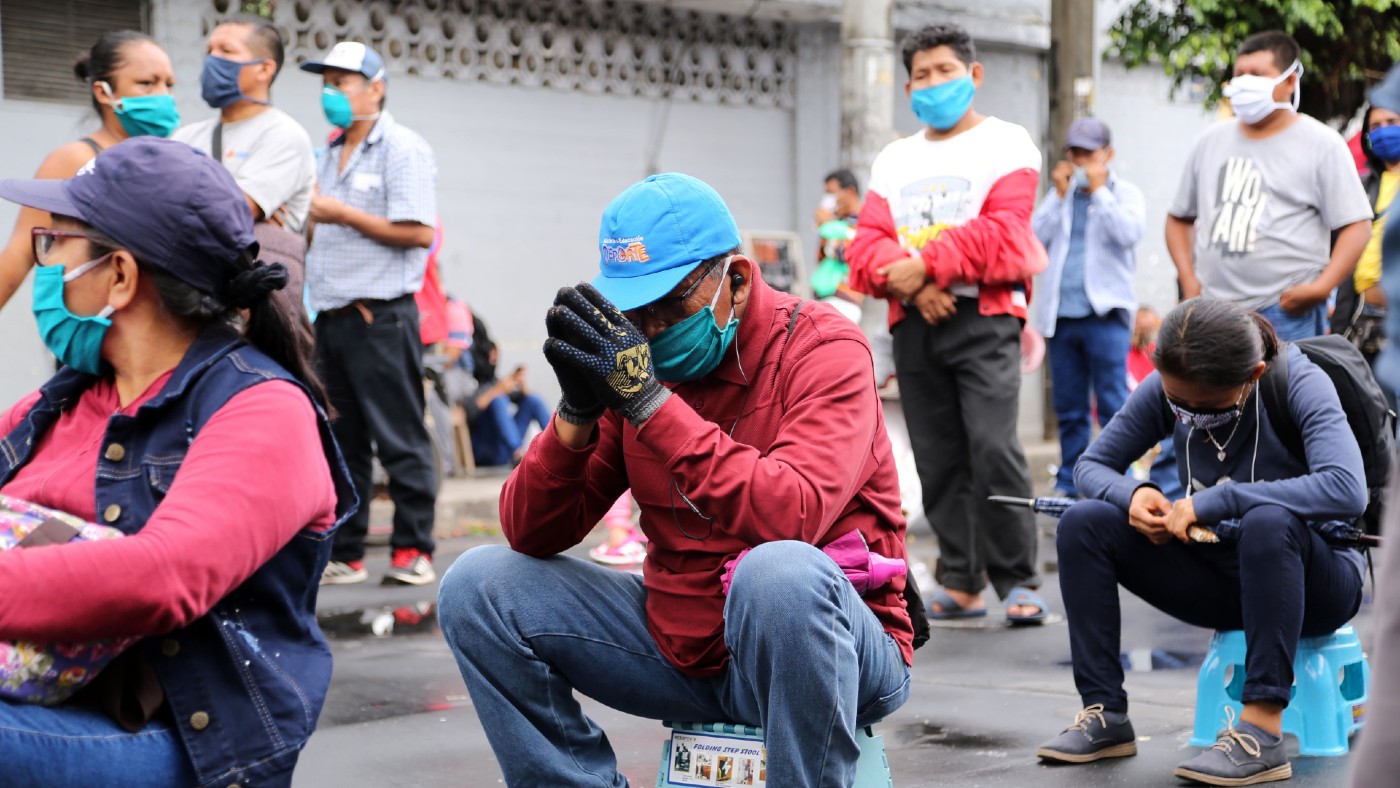‘Right on time’ - so where did Peru’s swift coronavirus lockdown go wrong?
Latin American country reacted quickly to pandemic yet is second-worst affected nation in the region

A free daily email with the biggest news stories of the day – and the best features from TheWeek.com
You are now subscribed
Your newsletter sign-up was successful
Health experts are puzzling over why Peru has been hit so hard by the coronavirus pandemic despite having been one of the first Latin American countries to lock down.
With almost 233,000 confirmed Covid-19 infections and more than 6,800 deaths, according to latest figures, Peru is the second-worst hit nation in the region, after Brazil, and the eighth-worst in the world. So what went wrong?
Peru’s President Martin Vizcarra adopted the World Health Organization’s coronavirus recommendations almost to the letter. Lockdown plans enforced by police and the army were in place nationwide by 16 March, with schools closed and borders closed to travellers from countries with high infection rates.
The Week
Escape your echo chamber. Get the facts behind the news, plus analysis from multiple perspectives.

Sign up for The Week's Free Newsletters
From our morning news briefing to a weekly Good News Newsletter, get the best of The Week delivered directly to your inbox.
From our morning news briefing to a weekly Good News Newsletter, get the best of The Week delivered directly to your inbox.
“Peru’s response was right on time,” said Elmer Huerta, a Peruvian doctor and broadcaster on public health matters. “It was the first country in Latin America to respond with a lockdown.”
“But the problem was people’s behaviour,” Huerta told The Guardian. “The fact that on the eighth week of confinement you have thousands of people who are positive [for Covid-19] means that those people got the virus while the country was in lockdown – which means they did not respect the law.”
According to Reuters, “high levels of poverty and informal labour” are key reasons for the failure of the response.
That view is also held by Hugo Nopo, a researcher at Peruvian think-tank Grade.
A free daily email with the biggest news stories of the day – and the best features from TheWeek.com
–––––––––––––––––––––––––––––––For a round-up of the most important stories from around the world - and a concise, refreshing and balanced take on the week’s news agenda - try The Week magazine. Start your trial subscription today–––––––––––––––––––––––––––––––
“They asked us to stay at home, but a lot of people have no savings so that was impossible. They asked us to wash our hands, but one in three poor households has access to running water,” he told The New York Times.
In a country where only half of homes have refrigerators, Nopo added, many families have no option but to go to crowded markets every day for basic provisions - a major source of contagion.
Dr Huerta agrees that the country’s deep financial inequality is at least partially to blame for the soaring infection rates. “What I have learned is that this virus lays bare the socio-economic conditions of a place,” he told CNN.
Or as The New York Times puts it, the scale of the crisis “has marred Peru’s veneer of economic progress, exposing the deep-rooted inequality and corruption that have thwarted its pandemic response”.
Strained healthcare services and income inequality have also scuppered the response to the outbreak. “Hundreds have died without receiving help from the health system, and many families have faced financial ruin due to the cost of trying to care for the sick,” says The Guardian.
Last month, doctors across Peru called for more government support for hospitals struggling to cope with the rising number of coronavirus admissions, as Al Jazeera reported at the time. More than 1,300 doctors nationwide had already contracted the virus when they made their plea.
Meanwhile, President Vizcarra admitted that his country was facing a challenge like no other faced before.
“Results haven’t been exactly what we expected,” he said. “This isn’t just a health or sanitary crisis, but a social and economic crisis without precedent.”